In a world where change is the only constant, keeping your routines fresh can feel like a game of whack-a-mole. Just when you think you’ve nailed it, life throws a curveball. Updating routines isn’t just a good idea; it’s essential for staying sane and productive. After all, who wants to be stuck in a monotonous loop like a broken record?
Table of Contents
ToggleUnderstanding Routines
Routines play a crucial role in daily life by providing structure and consistency. They help individuals stay organized and focused amid chaos.
Importance of Establishing Routines
Establishing routines offers numerous benefits. They promote efficiency by streamlining daily tasks. Structure allows for better time management and minimizes decision fatigue. Increased productivity emerges when routines are clear and defined. Individuals experience reduced stress as well, since predictable patterns lead to a feeling of control. Consistent routines foster healthier habits, supporting physical and mental well-being. Establishing routines can ultimately shape a more balanced lifestyle.
Identifying Your Existing Routines
Identifying existing routines requires careful observation. Individuals should start by analyzing their typical day, noting activities that recur. Writing down these activities highlights which routines exist. It becomes essential to consider time spent on each routine. Determining which routines bring satisfaction or stress is equally important. Awareness of these factors enables individuals to assess and update their routines effectively. Regular reflection can uncover hidden or unproductive habits, leading to informed adjustments. Such evaluations contribute to better overall balance and fulfillment.
Routine for Updating Routines
Staying effective requires a proactive approach to updating routines. Regular assessment ensures individuals make necessary adjustments.
Assessing Current Effectiveness
Evaluating existing routines begins with self-reflection. Identify which habits consistently facilitate productivity and well-being. Regularly review tasks to consider their significance and impact. Use a journal or checklist to document findings and highlight areas needing change. Engage in discussions with peers for additional insights. This collaborative approach enhances awareness and reveals blind spots in daily practices.
Setting New Goals
Defining fresh objectives refreshes routines and energizes focus. Begin with specific, measurable targets that align with personal aspirations. Prioritization is key; concentrate on achievable goals that promote balance and growth. Break down large goals into smaller, manageable actions. Regularly revisit and adjust goals as needed to reflect changes in circumstances. Setting deadlines for each objective boosts accountability and motivation.
Implementing Changes
Updating routines requires practical techniques and strategies to ensure effective transitions. Individuals often benefit from incorporating a variety of methods to refresh their habits.
Techniques for Updating Routines
Daily reflection on existing routines serves as a foundational technique for updates. Individuals should identify which activities support their goals and contribute positively to their well-being. Lists or charts that track behaviors can provide visual clarity, guiding necessary changes. Techniques such as time-blocking improve focus by allocating specific hours for tasks. Adjusting routines incrementally allows for smoother transitions, reducing overwhelm. Seeking feedback from peers can also spark valuable insights, fostering a collaborative approach to refining habits.
Building Momentum and Consistency
Establishing momentum requires commitment to consistency in applied changes. Small successes reinforce the desire to stick to new routines. Setting short-term goals allows individuals to experience quick wins, promoting motivation. Regular check-ins serve as reminders to stay on track and evaluate progress. Celebrating achievements, no matter how minor, enhances confidence and dedication. Individuals should ensure that adjustments align with their long-term aspirations, keeping routines relevant and energized.
Evaluating Progress
Evaluating progress is essential for ensuring routines serve their intended purpose. Individuals need regular check-ins to assess what works and what requires modification.
Reflection and Adjustment
Regular reflection enhances routine effectiveness. Journaling about daily experiences helps individuals identify successful habits versus those that hinder progress. Discussions with peers provide different perspectives, enriching the evaluation process. Adjustments can then be made based on insights gained from this reflection, fostering a more balanced lifestyle. Affirming achievements and recognizing challenges lead to informed changes in routines, promoting ongoing growth and adaptability. Effective goal-setting should coincide with these reflections, making it easier to implement actionable modifications.
Celebrating Milestones
Celebrating milestones contributes to sustained motivation. Acknowledging accomplishments, both big and small, reinforces positive behaviors. Individuals should consider creating a visual reward chart to mark achievements, helping to maintain momentum. Sharing successes with friends or family can enhance accountability and motivate further progress. Setting small, achievable targets linked to larger goals ensures consistent celebration opportunities. This approach makes updates to routines more engaging and fulfilling, fueling the desire for ongoing improvement and commitment to personal growth.
Conclusion
Regularly updating routines is essential for maintaining productivity and mental well-being. By embracing change and being proactive, individuals can adapt their habits to meet evolving needs and challenges. This adaptability not only enhances efficiency but also fosters a sense of accomplishment and motivation.
Engaging in self-reflection and utilizing tools for assessment allows for informed adjustments. Setting achievable goals and celebrating progress creates a positive feedback loop that reinforces commitment to personal growth.
Ultimately, the journey of refining routines is an ongoing process that cultivates resilience and focus, ensuring individuals remain aligned with their aspirations in a dynamic world.








